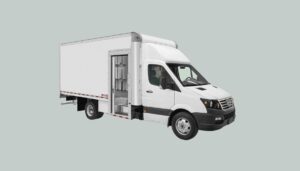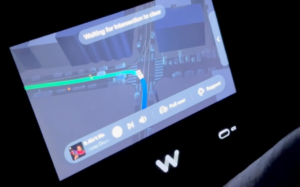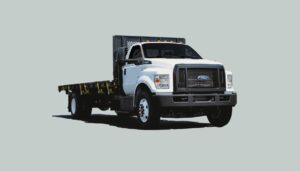At ACT Expo 2024, SHAED spurred an illuminating conversation around EV Dealer readiness in a rapidly evolving automotive landscape. Hosted by SHAED VP of Utilities and Infrastructure, John Lanham, the discussion featured Ben Bercham from Rexel Energy, Bobby Snader & Jessie Butala of ChargePoint, and Christian Stokes from Mercedes-Benz.
👇WATCH BELOW 👇
Exploring the importance of Dealer Support Programs: Insights from Industry Experts
In today’s rapidly evolving automotive landscape, preparing dealerships for the electric vehicle (EV) revolution is crucial. The transition to EVs involves significant changes, especially in terms of infrastructure and training. The latest episode of the SHAEDs ACT 2024 podcast brings together experts from Rexel Energy, Mercedes-Benz USA, and ChargePoint to discuss the key aspects of dealership readiness for EVs.
EV Charging Infrastructure
Setting up EV charging stations at dealerships is a technical and often challenging process. Ben Beecham from Rexel Energy outlines the intricate details involved, emphasizing the need for proper education and support for dealerships. This technical complexity is compounded by the fact that every dealership is different. Beecham explains, “Every dealership is different…some are involved and not so involved in building out their electrical infrastructure.” The infrastructure required for EV charging involves understanding the electrical load, installing appropriate equipment, and ensuring compliance with safety standards. Moreover, dealerships must also consider the types of charging stations they need, such as Level 2 or DC fast chargers, depending on their customer base and vehicle inventory. The support provided by experts like those from Rexel Energy ensures that dealerships can navigate these complexities smoothly.
Partnerships and Collaboration
Although, the transition to EVs is not something that any single entity can handle alone. The podcast highlights the importance of partnerships between OEMs, energy solution providers, and dealerships. Christian Stokes from Mercedes-Benz USA speaks to the value of such collaborations, stating, “It was really great for us to be able to partner with Rexel and ChargePoint on the commercial vehicle side at Mercedes-Benz.” Also, these partnerships enable a holistic approach to dealership readiness, combining expertise in vehicle manufacturing, energy solutions, and charging technology. Such collaborations facilitate the sharing of best practices, streamline processes, and ensure that all stakeholders are aligned in their goals to support the transition to EVs.
EV Dealer Readiness and Requirements
Ensuring that dealerships are equipped to sell and service EVs requires clear guidelines and comprehensive manuals. These resources provide the necessary information on training, special tools, and the installation of appropriate charging infrastructure. Stokes highlights the creation of the East Sprinter Readiness Manual, which includes technical training and the necessary tools for workshops. “We created what we call the East Sprinter Readiness Manual…technical training that needs to happen, the special tools that you need in your workshop,” he says. The consistent messaging and guidance offered by such manuals are crucial for success. Beecham adds, “A consistent message…We were guiding them exactly the same way across the whole portfolio.” These manuals not only outline the technical requirements but also provide a roadmap for dealerships to follow, ensuring that they meet corporate standards and are prepared to handle the new technology effectively.
Challenges and Solutions
Despite meticulous planning, challenges are inevitable. Variability among dealerships and the need for new transformers are just a few of the obstacles that may arise. Beecham discusses the importance of addressing these challenges early and planning for future scalability. Additionally, having a process in place for exceptions and unforeseen issues is essential. Stokes points out, “You do run into issues with some of these projects but it’s important to be able to have those exceptions in place.” By anticipating potential problems and being flexible in their approach, dealerships can avoid delays and additional costs. This proactive problem-solving ensures that even complex projects, such as those requiring new electrical transformers, are handled efficiently and effectively.
Conclusion
The EV Dealer Readiness Program is a comprehensive approach to preparing dealerships for the electric future. Through technical education, strategic partnerships, clear guidelines, and proactive problem-solving, the transition to EVs can be smooth and efficient. As the experts in the podcast demonstrate, a collaborative and well-organized effort is key to ensuring that dealerships are ready to meet the demands of the rapidly growing EV market. This readiness not only benefits the dealerships but also enhances the overall customer experience, fostering confidence in the adoption of electric vehicles. By embracing these strategies, the automotive industry can seamlessly transition to a more sustainable future.
_ _
Written by Taylor Steele
October 2024




